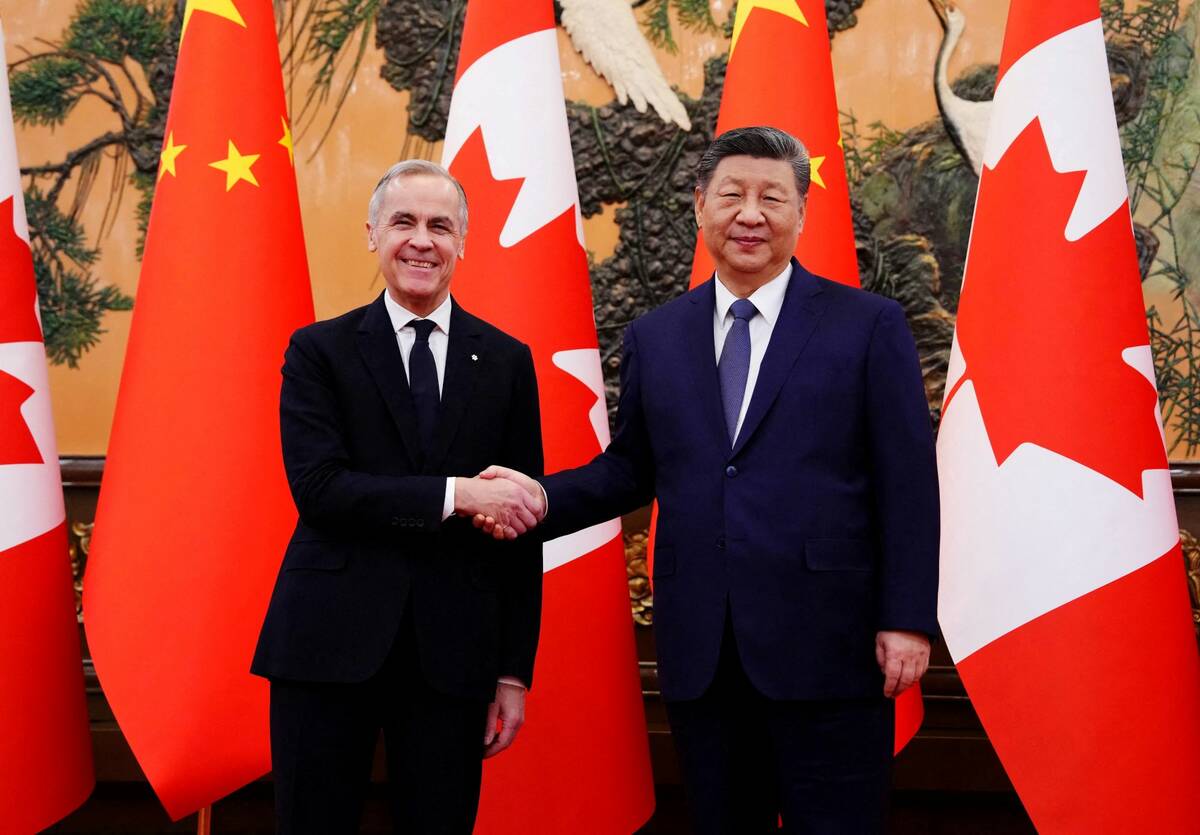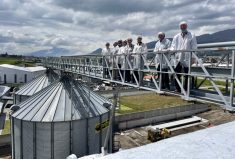Funding commitments from producer organizations to a new Cereals Canada facility should help secure money from other sources, including governments, said chair Brett Halstead.
Last week, Alberta Grains, SaskWheat and the Manitoba Crop Alliance all announced a collective contribution of $13.2 million to the proposed Global Agriculture Technology Exchange (GATE) in Winnipeg. Grain Farmers of Ontario also announced its intention to support the facility.
Why it matters: The planned Cereals Canada hub in downtown Winnipeg has proven contentious, with questions about its location.
Read Also

Market impacts of canola headlines need digesting
January 2026 has been quite the month for Canadian canola trade, how will it all ripple out in the market?
The new building would essentially replace the former Canadian International Grains Institute facilities. CIGI and Cereals Canada merged earlier this year.
GATE is expected to cost about $102 million, and Cereals Canada has set aside $5 million for its portion.
Plans for the new facility include “state-of-the art analytical milling, baking, noodle- and pasta-making, malting and brewing, oat processing and educational training facilities to support and train global customers about the quality, functionality, safety and sustainability of Canadian grains,” according to promotional materials.
Push back
Some farmers who contribute levies to their provincial farm organizations said this is not how they want their money spent.
Corey Loessin of Radisson, Sask., posted on X that he didn’t support SaskWheat’s $6.24 million investment.
“This is not what levy dollars are for,” he said. “We support a lot of what SaskWheat invests in but not a building in Winnipeg. It will not improve our profitability one bit. #refundtime”
He added that market development is separate from owning a building, and there are long-term maintenance, operating and upgrading costs involved.
Halstead, who represents SaskWheat at Cereals Canada, replied that the ongoing costs will be less than rent. He said there is no existing building that meets industry needs and cost threshold.
The lease on their current facility, also in downtown Winnipeg, expires in 2027 with the option for an additional year.
“New or updating equipment is not an option on the upper floors of the current building,” Halstead posted. “There’s also power, water and other issues there.”
Loessin declined to comment further, except to note SaskWheat’s mandate does not include capital investment.
In an interview, Halstead said he heard of opposition to the building in June, but hadn’t received a single phone call from any of the hundreds of people he knows.
“We’ve thoroughly flushed this out, talked about different options, both at the Cereals Canada table as well as provincially at SaskWheat and we think the best option is to move forward with this type of building,” he said.
“Farmers are kicking it off to show support, and we’ll see if the other funding options through private industry and government contributions can come together to make this work.”
Halstead noted that other contributors have said they want producers to come to the table. He also said buyers want the service and technical support that the facility will provide.
“We sell a premium product on the world market, and just like when you buy a premium car or combine or tractor, you expect some service out of that,” he said.
The majority of the 80 countries that buy Canadian wheat ask for technical help and have questions about how best to use it, he said.
“The Americans push hard on this type of thing,” he added. “They’re targeting our markets and we’re trying to keep them. We don’t want to be a residual supplier to whatever the Americans can’t fulfil.”
Money talk
Funding that grower organizations have committed is conditional upon Cereals Canada raising the rest.
Manitoba Crop Alliance has committed $2.66 million, and chair Robert Misko said the organization sees significant value in the work Cereals Canada undertakes on behalf of growers.
“Market development and access is a top priority for MCA and one of the core principles that guide our work,” he said in a news release.
Alberta Grains Region 6 director Greg Spears also highlighted the work done to maintain Canada’s competitive edge.
“The Gate initiative will not only reinforce our existing markets but will also open new avenues for growth and innovation, ensuring that Alberta’s wheat and barley producers remain at the forefront of global trade,” he said.
Grain Farmers of Ontario, representing 28,000 growers of barley, corn, oats, soybeans and wheat, said it will support the building, but did not provide a dollar amount.
As a hub of excellence for cereals, the facility will help Canada maintain its support for markets and end-user success, the organization said.















